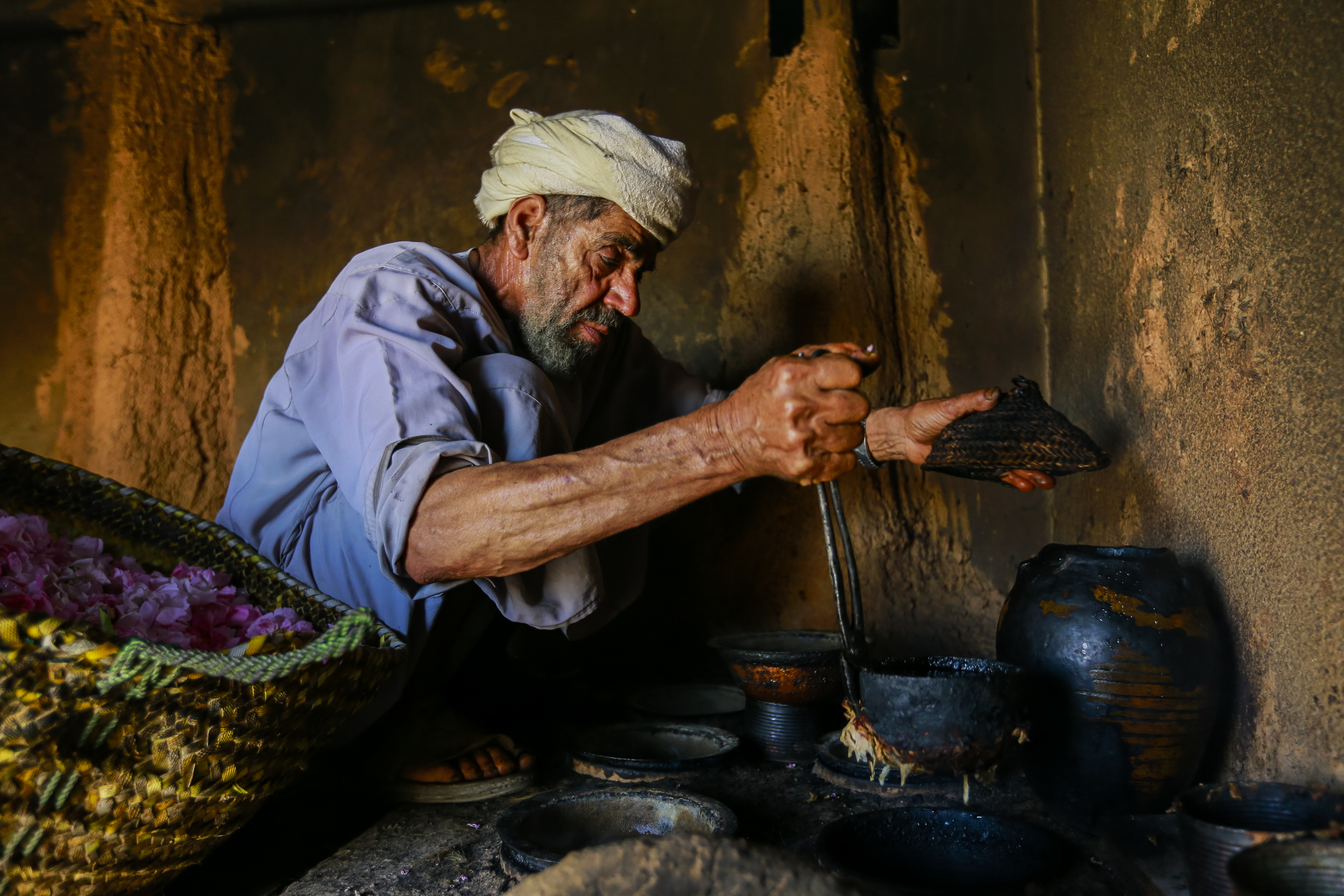
As soon as I crossed the Hormuz checkpoint, it felt as though I’d entered a different world. Far from the concrete jungle of Muscat, I was in the heart of the natural wilderness of Oman, in the jewel of the Hajar mountains, Jebel Akhdar.
The air and the smell of the place was fresh, untouched by the impurities of development, and as we ascended the green mountain, the temperature continued to drop, the view growing ever greener. We spotted Zaitoon (olive) trees, triangular shaped Al Alan (juniper) trees, and various other trees filled with wild berries.
On top of one of the plateaus, I looked down over the rocky cliffs and saw little patches of agricultural villages dotting the valleys and mountain sides. They reminded me of the ancient civilisations I had read about in history textbooks in school. I soon found out that these were the villages of Jebel Akhdar, some of which had been abandoned over the years, while others were still inhabited.
One such village was Al Ayn, which literally translates to “The Eye”.
This small village had a lot to offer to a journalist who had gone to the mountains hunting for a story. As we drew closer, I could see that the village was made up of a collection of dihijan, small mud huts decorated with bright coloured doors and windows.
At the top of an elevation at the edge of town, I was awestruck at the sight of a sprawling plantation farm covering the cliffside: a blanket of green, a huge walnut tree with tiny walnuts budding out of the branches, a green falaj spring running along the peripheries of the farm, with plants and trees of different shapes and a particularly spectacular spread of pink buds and flowers that swayed gracefully with the cold wind.
I made my way down to the farm, and the sweet smell of the roses overpowered my senses. Far from a decorative rose garden, these flowers are one of the key ingredients in one of the most famous specialities of Jebel Akhdar: smoky rosewater.
Rosewater distillation is a very old handicraft, the people in Al Ayn have been actively involved in it for at least 500 years, and it remains one of the primary occupations of the villagers here. The process is a simple but tedious one, keeping the distillers completely occupied for about three months every year, beginning in mid-March when the plantation farms turn pink as ward al jabal, or damascina roses, dominate the fields, through mid-May.
Of the thousands of varieties of rose, only a few produce the fragrant oil required to make rosewater, damascina being one of the most famous of this prized variety. The distillery process will begin only when the villagers are confident that they have enough roses, typically about 2kg, to produce a full batch of rosewater.
Once a sufficient amount of roses have bloomed, they are plucked and kept covered under a wet blanket for three to six hours.
The damp roses are then stuffed in 15-litre pots and a small copper bowl, known as tasar/salha, is placed on top of them. The opening of the pot is sealed with a wet fabric and a wood fire is ignited (these days many are switching to gas-heated flames) below the pot.
Within 30 minutes, the vapour starts evaporating off of the rose petals which will create a condensation on the surface of the wet cloth, dripping back down into the copper bowl. It takes nearly three hours for the copper bowl to fill, and when it does, the liquid is poured into another vessel, the burnt petals are replaced with fresh ones, and the process begins all over again.
This cycle will continue 24-hours-a-day for two to three months, until the season ends around mid-May.
Prized, pure rosewater, made using only rose and water, is typically identified by its crystal clear colour, but the rosewater of Jebel Akhdar, while pure, is quite different. In addition to having a much longer shelf life than typical rosewater, it is brown in colour, and features a prominent smoky smell and taste due to the fact that in this simple distillation process the petals are allowed to char and the liquid, rather than being distilled in an open system, is tightly sealed in a closed system where it is allowed to take on the smoky scent and flavour of the burning petals.
It is said to have medicinal properties, curing headaches and improving the skin, and the water is often sprinkled on guests and visitors to the mountain small villages to welcome them. But the primary use of this water is culinary.
If you sip a cup of kahwa served to you by the locals in Dakhiliyah, then it will no doubt taste different from the delicate rosewater-laced coffee you’ve tasted down in Muscat. The biggest consumer of the smoky rosewater in Oman are the halwa factories who use it for the distinctive flavour it adds to traditional Omani halwa.
Like so many of life’s most delicious discoveries, this unusual rosewater was likely born out of the necessity for a simple distillation process, but the smoky result was to become one of Oman’s essential flavours, one which always felt faintly familiar to me, but that I could never identify until my trip up the mountain.
—[email protected]